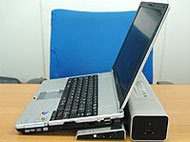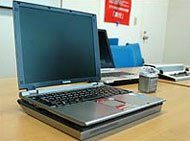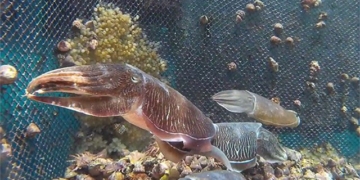Toshiba, the Japanese electronics manufacturer, has announced that the trial process has dispelled doubts about the capabilities of fuel cells. Therefore, they plan to commercialize the product for laptops next year after addressing issues related to size, weight, and noise.
 |
|
The prototype fuel cell from Toshiba is still quite large. (Image: BBC) |
Toshiba has been researching fuel cells for the past four years. The version currently being tested resembles a square aluminum canister with a one-liter capacity attached to the back of the laptop.
It has the capability to operate continuously for 10 hours. An integrated program will display the remaining fuel with much greater accuracy than the battery icon and percentage of energy on the laptop’s toolbar.
Tomoaki Arimura, a fuel cell specialist at Toshiba, noted that some individuals expressed concerns about the risk of methanol leakage, while others enjoyed using the product so much that they did not want to return it after the trial period ended.
 |
|
The future design of Toshiba’s fuel cell will be smaller and slimmer. (Image: BBC) |
According to Arimura, the battery is designed to be quite slim yet has a solid structure and durability equivalent to that of a laptop’s lifespan. “We have dropped the product onto the ground from the front, back, and edges, and it is truly very safe,” Arimura affirmed. Additionally, Toshiba’s fuel cell is equipped with sensors to automatically lock the battery whenever it experiences a shock.
This new battery technology promises to supplement or replace batteries in current laptops. Recently, Hitachi, Fujitsu, Samsung, Sanyo, and many other companies have also showcased prototypes to affirm that this technology is soon to hit the market.
P.T.


















































